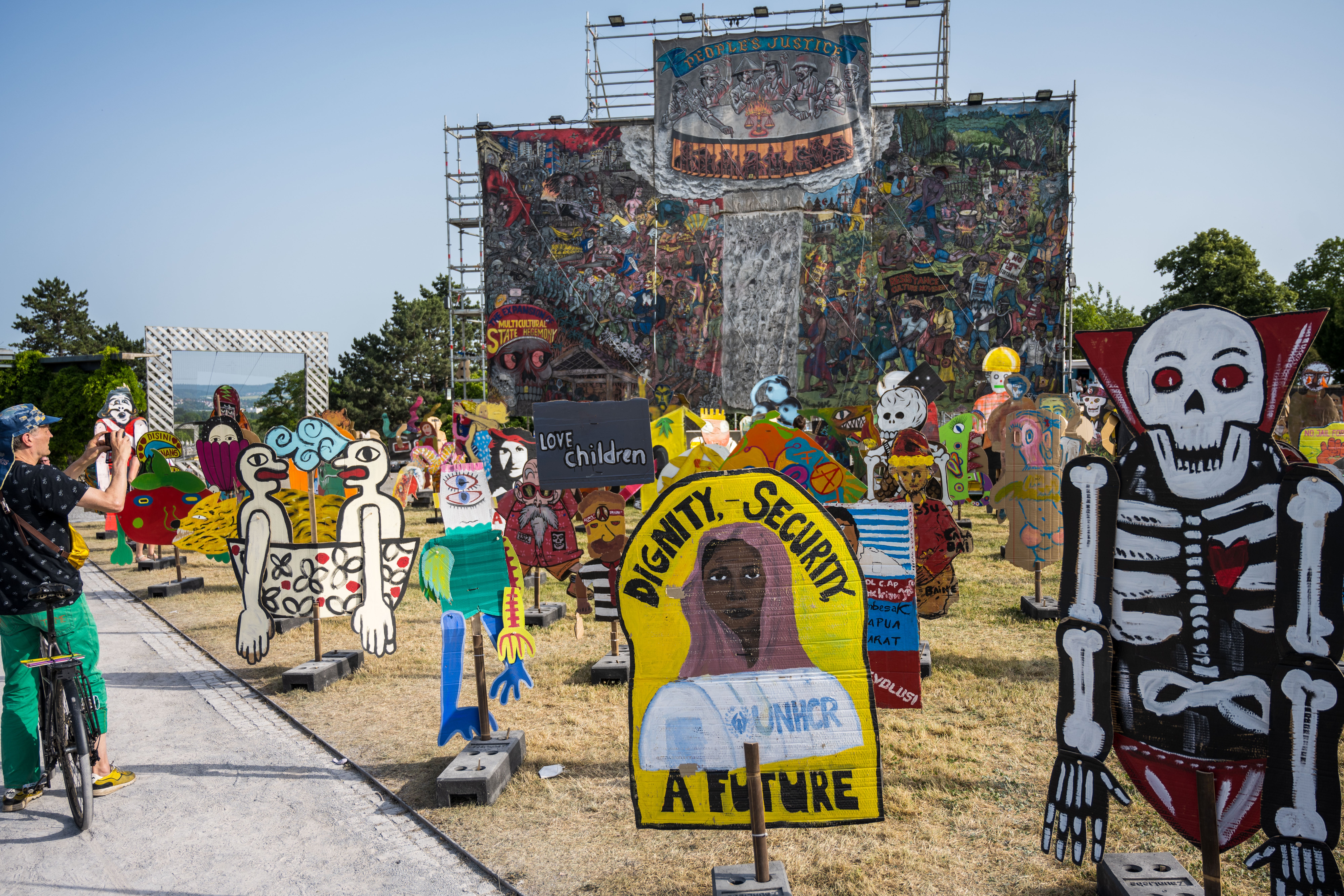Indonesian artists’ ‘antisemitic’ work removed from German show after upsetting Israel
Israeli embassy officials in Berlin say they are ‘appalled by the antisemitic elements’

Your support helps us to tell the story
From reproductive rights to climate change to Big Tech, The Independent is on the ground when the story is developing. Whether it's investigating the financials of Elon Musk's pro-Trump PAC or producing our latest documentary, 'The A Word', which shines a light on the American women fighting for reproductive rights, we know how important it is to parse out the facts from the messaging.
At such a critical moment in US history, we need reporters on the ground. Your donation allows us to keep sending journalists to speak to both sides of the story.
The Independent is trusted by Americans across the entire political spectrum. And unlike many other quality news outlets, we choose not to lock Americans out of our reporting and analysis with paywalls. We believe quality journalism should be available to everyone, paid for by those who can afford it.
Your support makes all the difference.The work of an Indonesian art collective has been taken down from a major art show in Germany after it was condemned for bearing “antisemitic” elements.
Titled “People’s Justice”, the installation by Taring Padi was put up in central Germany’s Kassel at an art exhibition of the Documenta contemporary show last week.
Authorities objected to the depiction on a banner of a soldier with the face of a pig. He was shown wearing a neckerchief with a Star of David and a helmet inscribed with the word “Mossad” — the national intelligence agency of Israel.
It also depicted a man with sidelocks, associated with Orthodox Jews, having fangs and bloodshot eyes and wearing a hat with the symbol of the Nazi-era Waffen SS.
Officials at the Israeli embassy in Berlin said they were “appalled by the antisemitic elements” that were put on display in Kassel. The diplomats sought the immediate removal of the art collective’s work from the exhibition and said that “they have absolutely nothing to do with free expression of opinion, but are an expression of an old-style antisemitism”.
On Monday, organisers of the art show said they would cover up the work but the next day, the city’s mayor Christian Geselle said that the work would be taken down altogether.
The removal of the exhibit was “overdue” and “is only a first step”, Germany’s culture minister Claudia Roth said in a statement, adding that “more must follow”.
“It must be cleared up how it was possible for this mural with antisemitic figurative elements to be installed there,” the minister said.
The show Documenta opened on Saturday and is already facing fire over the antisemitism allegations.
The collective Taring Padi took to its Facebook page and said that the banner installation “People’s Justice” displayed a “campaign against militarism and the violence we witnessed during the 32-year Suharto military dictatorship in Indonesia and its legacy, which continues to have an impact today”.
Issuing an apology and stating that the work will be covered up, the collective said: “The People’s Justice exhibition at Friedrichsplatz is the first presentation of the banner in a European and German context. It is in no way related to antisemitism.
“We are sorry that details of this banner are misunderstood other than their original purpose. We apologise for the injuries caused in this context. As a mark of respect and with great regret we cover the relevant work which is found offensive in this particular context in Germany.”
According to the collective, “all of the figures depicted on the banner refer to symbolism that is widespread in Indonesia’s political context”.
They added that the work, first exhibited at the South Australia Art Festival in Adelaide 20 years ago, is now a “monument to grief and the impossibility of dialogue at that moment”.
Additional reporting by agencies
Join our commenting forum
Join thought-provoking conversations, follow other Independent readers and see their replies
Comments